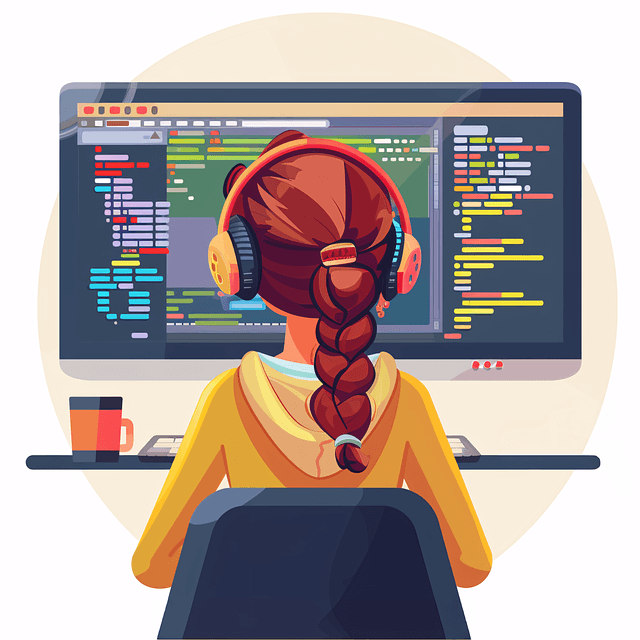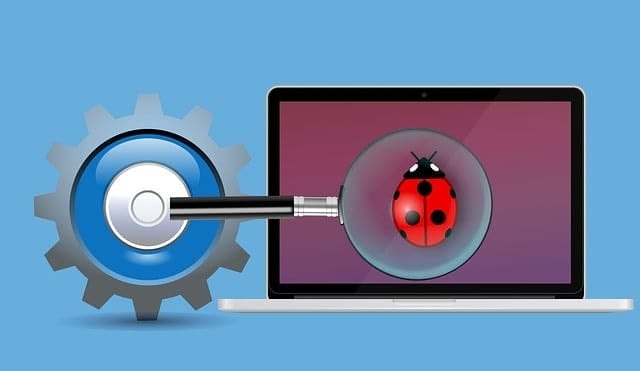Coding Skills: How Games Can Teach Your Child about Coding
Coding Skills: How Games Can Teach Your Child about Coding

Learning to code can be a nightmare for kids at first. However, a game-based approach, such as coding for games, makes it fun and engaging. Kids can learn essential programming concepts by incorporating coding with games while enjoying their favourite activities. Game-based learning has transformed how children acquire skills indirectly, providing a more interactive and enjoyable experience. Children are naturally interested in games and puzzles, and by introducing basic coding fundamentals like loops, conditions, and logic building through an online coding game, they can develop essential skills and build a strong knowledge base for future learning.
Building Coding Skills Through Game-Based Learning

Play-based learning is a new way to develop coding skills in kids. This coding experience is developed entertainingly. Once kids start working with games, loops, conditionals, and logic, they suddenly enter the mix. We can fit all of those into the gameplay itself. Through this immersion, kids learn coding fundamentals while enjoying online coding games. It’s one of the best ways to learn to code, as they are completely unaware they have ever learned anything.
Basic Coding Skills through Game-Based Learning
Loops: Many games have you go from one point to another. Or they repeat an action. Consider a character jumping to avoid something; that is essentially what the person in the loop does.
Conditionals: These are the "if-then" statements of coding. They allow a program to make decisions for them. Games often use conditionals. They give players choices on how the play can evolve from there. If players obtain this item, a new road will be unlocked for a puzzles
Logic: The basis for all mechanics in every game and continually building a new puzzle, strategy or pattern for players to solve. These educate the children about the actual order they will face when coding or playing. So many of these popular platforms will develop games to train kids on coding while playing.
Exploring the Programming World Through Popular Platforms
Scratch: Scratch is a free, child-friendly and creative platform that helps kids to make their own games, animations engaging stories while introducing basic coding concepts such as loops, conditionals and variables.
With a drag-and-drop interface, coding is reduced to dragging blocks with the mouse so that kids can spend their time building their creativity and practising lateral thinking skills. They work on amazing projects to acquire skills, preparing them for more advanced CS courses. Scratch encourages students to share their work with a worldwide community, encouraging collaborative learning.
Code.org : Code.org is a one-stop solution for all levels. With the help of fun videos and exercises, it covers fundamental coding concepts like conditionals, loops, and variables. These are fun and the best way for students to learn.
It is a hands-on platform that teaches children to create code early, establishing the basics of problem-solving and computational thinking. From there, students can transition to text-based coding languages like Python and JavaScript, which helps them improve their programming skills.
Tynker: It is a fun, online learning platform for children to learn programming basics and skills such as problem-solving and rational thinking. With a practical approach, children can experiment with block-based coding before moving on to text-based coding using popular programming languages such as Python and JavaScript.
Tynker supports many skill levels, so beginners and advanced students will find appropriate challenges. From projects like image processing to others involving game development, the platform is a great way for kids to learn how to code early on.

Engaging Young Minds in Computer Science Through Games
With play-based learning, kids can now learn coding basics in a fun, engaging way. Coding with games offers one of the best ways to learn to code, making it more exciting and interactive than traditional methods, which can often feel dull and difficult. This approach creates an environment that encourages students to think critically and solve problems. Stories, rewards, and fun tasks inspire kids to code. They stay focused longer, too.
Developing Real-World Skills Through Game-Based Coding
Game-based coding tools incorporate interactive tutorials and practical exercises, appealing to students of all ages, experience levels, and skill levels, from beginner to expert. The platforms provide a free, immersive curriculum that introduces fundamental coding concepts such as loops, conditionals, and debugging.
They have projects that will allow you to explore coding in fun and creative ways while also preparing you with real learning for future careers. These challenges have led these young developers to progress as they build the critical thinking skills required for any job in a world now driven by technology. This makes coding accessible and appealing to each student, no matter their background or learning style.

Benefits of Coding with Games
Increased Engagement: These act as learning tools and keep kids engaged longer. They feel like playing, not studying. This way of learning through interaction makes them want to practice more, ultimately honing their language skills over time.
Promotes Creativity: Allow kids to learn to design, program and build their virtual worlds. Scratch and Code.org have kids creating characters, building worlds, doing puzzles or developing stories. It improves student creativity because kids can experiment and see instant feedback from their creation and coding decisions.

Unlocking the Programming World Through Game-Based Activities

Instead of traditional and old methods, game-based coding tools and challenges make it more fun, accessible and practical to introduce kids to real-world programming skills. These skill-building tools and engaging games hone promising skills such as troubleshooting, critical thinking and thinking out of the box.
Think of a student progressing through a tricky puzzle. He may appear stuck at the first step, but every unsuccessful attempt leads him to reconsider and find a unique approach.
Coding isn't about getting it right. It's about learning and iterating. Game-based learning experiences like these help kids develop lifelong skills. These skills will serve them in and beyond computer science.

Early Age Learning Sets a Strong Foundation
Children are given tasks built around particular skills in these text-based coding games and puzzles. For example, they may need to put code blocks in the correct order to solve puzzles. This process helps develop logical and algorithmic thinking skills.
The activities that kids engage in block-based and text-based coding further teach them how to break down complex situations, instructions, and codes into bite-sized and manageable step-by-step processes, helping kids create a hands-on baseline of what it means to code.
Debugging Skills Through Games

Another good challenge to teach kids is debugging, which is finding and fixing errors in code. Think of your child's pride in locating a bug that crashes their program and addressing it logically, step by step. These challenges are interesting methods of learning skills such as critical thinking and troubleshooting.
Through games, web development, and other projects, kids gain confidence and practical skills. Platforms and resources like Code.org and Scratch combine quality video tutorials with interactive instructions, making learning code fun and easy. They also provide opportunities and resources for students to practice code independently, increasing the quality and accessibility of programming.
Understanding What Coding for Kids Means Through Engaging Games
Coding for kids is not just about syntax and programming languages. It's about understanding how technology works and using it creatively. Imagine your kid creating characters and virtual worlds. Through programming, they would manifest their ideas. This is what coding for kids is all about.
These learning tools, resources, and experiences teach your student or child how computers and software work. They will be able to decompose complex tasks into smaller iterative steps, which may improve the quality of their approach and sequencing. Children will not passively consume tech but instead create it.

Coding games are designed to teach kids a different way of solving problems. Consider a child confronted with a challenge in a game. They need to be able to isolate the problem, decompose the steps and ultimately write code that solves it. They have to examine the problem and write the solution. This thinking is critical to breaking a complex task into smaller parts. They can use their skill levels in coding and so many other areas.

Kids' coding curriculum offers challenge-based learning with tailored difficulties, honing the students' critical computer science skills as they advance. These games enhance fundamentals such as block-based and text-based coding and even some simple projects related to web development and developing games, which ignite the student's interest and career in the world of programming very early.
In addition to computational thought, coding video games encourage creative problem-solving and allow students to produce rather than consume technology. Along the way, they make students pick up design, iteration, and prototyping skills (and learn to code) that progressively build in complexity with each new endeavour a child conquers.
Write Code While Playing: Game-Based Platforms for Kids
Plenty of free online platforms are available to teach kids coding so they can start their careers interactively. Platforms like Code.org and Scratch are perfect for beginners, offering a solid introduction to programming fundamentals.
Students can also learn how to play, and these platforms excel at block-based coding (a brilliant way to build skills). Students will encounter challenges while playing games and developing websites, encouraging problem-solving and critical thinking.

The Flexibility of Learning to Code Online
Flexibility is one of the most significant advantages of learning to code online. Kids learn to code online and can access video lessons or coding challenges whenever possible so they are comfortable before moving on. Project-based learning lets kids learn different coding languages like Python and Javascript. They are open to a world of opportunities, whether creating their games, solving puzzles, or experimenting with text-based coding.
Building Skills with Fun Challenges
In addition, online platforms promote rational thinking by taking kids step-by-step through tasks such as developing algorithms that help improve their skills. The hands-on experience at their own pace helps to create some of the essential competencies needed for tomorrow while also preparing them to take more advanced-level courses.
While the child plays the games, they are learning to code in a fun environment and actually practicing development and logical thinking.
These game-based platforms demonstrate how coding can be taught creatively and effectively, making coding an accessible and exciting journey for kids.
Game-Based Learning as the Best Way to Learn Python and Other Coding Languages
Regarding the choice of programming language, Python continues to gain popularity for teaching kids coding. With its easy syntax and readability, Python is an excellent first programming language, made even better if associated with hands-on games.
Imagine your child's excitement when he gets to code and learn basic coding notions through game-based learning activities. For beginner programmers, whether they are 8 or 80, Python is a good option for kids of any skill level.
The most effective and accessible way to learn Python is through a practical environment where kids write code and solve puzzles/challenges while playing games. The same concept has been applied in code.org, and Scratch teaches this curriculum. These platforms teach kids fundamental coding topics like data types, control structures, and functions to warm them up for real coding by giving them incremental experience.

However, these tools do more than teach students Python syntax. They fuse computer science and some of its core fundamentals into an engaging, explorative, and story-driven world that kids can interact with. Such an innovative method enhances coding proficiency and strengthens thinking ability while enabling kids to reach a good level of strength in computer science.
As they complete challenges, confidence builds, and working through different levels of skill and testing ideas gives them the feeling of extensive and complex projects being designed by their minds.

Children learn Python by playing these dynamic games, in parallel introducing them to other text-based coding languages to build skills that prepare them for the next steps. Each project they complete boosts their skills. They get closer to understanding the technology.
It grooms those equipped to build skills for coding and construction in the rapidly evolving world of tomorrow. It will create our next generation of developers. With this kind of learning program, kids can easily engage with and practice the skills needed to start coding in a fun way through coding challenges.
Coding Skills - FAQs
How can games help children develop strong coding skills from an early age?
Games use interactive environments to introduce basic coding concepts, such as higher-order and rational thinking. This approach captures the attention of younger students and lays a solid coding foundation they can utilize in school and work environments.
What are the most effective online coding game platforms for teaching kids to code?
Coding games and activities are available on platforms like Code.org, Scratch, and Tynker. These are introductory lessons that teach students the basics of programming. They encourage children to think creatively and find solutions. They build skills and also provide insights into the understanding of coding.
How does game-based learning compare to traditional methods for teaching coding skills?
Game-based learning is an exciting yet different approach to traditional teaching. It places students in active and appealing surroundings. There are no readings, and it focuses on experiential learning, thereby improving retention of fundamental coding concepts like loops, conditionals, logic building, etc.
This approach, in turn, also encourages critical thinking, problem-solving ability, and logical reasoning, which are core skills for computer science and the world. Instead of textbook-style studies and abstract theory, game-based learning makes the process fun and helps one learn how to write code and understand the world of programming.
What are the best ways for beginners to develop coding skills through engaging games?
Practical challenges that build logic and teach core programming concepts such as loops, conditionals, and variables. It gives a high sense of accomplishment through experiences, as beginners can complete puzzles and bring their code alive, which builds confidence and excitement.
Easy, free-to-learn puzzle code interfaces to bring people up to speed on analogues before switching to text-based programming.
How can parents use coding games to teach kids the fundamentals of coding at home?
Parents can use coding games to teach kids fundamental coding. These games use interactive coding environments and hands-on projects. They are fun and allow the kid to write code and solve problems. The kid can also explore the programming world through challenges and puzzles.

Video tutorial platforms, advanced courses, etc., help them create engaging learning environments. Kids can learn the basics and gain thinking-out-of-the-box skills at an early age. This unique approach nurtures thinking outside the box. It also prepares the next generation for future CS curriculum jobs.
What is coding for kids, and how do online platforms make learning through games easier?
Teaching kids to code enhances their thinking and uses technology as a creative medium. Online platforms simplify this journey. They use drag-and-drop coding and game development to make learning interactive and hands-on. Kids build skills through video tutorials and self-paced projects. They also learn critical thinking, problem-solving, and logical reasoning.
What role do coding games play in developing computational thinking in young learners?
Key concepts of this thinking can be found in coding games. These games teach you to parse a problem, identify patterns, and build an algorithm. These games require hands-on experience. They help strengthen important skills and provide young learners with the problem-solving skills that are essential in the digital age.
Comments
Your comment has been submitted